 As we wrap up the characterization of thermosets series, the final topic for the next several posts will be Dynamic Mechanical Analysis (DMA). I left this for the end of the Thermoset Characterization series since this will be a good lead-in to our next blog post series on Rheology of Thermosets. So let’s dive into DMA.
As we wrap up the characterization of thermosets series, the final topic for the next several posts will be Dynamic Mechanical Analysis (DMA). I left this for the end of the Thermoset Characterization series since this will be a good lead-in to our next blog post series on Rheology of Thermosets. So let’s dive into DMA.
The technique is called dynamic mechanical analysis since the sample being probed is subjected to a time-varying deformation and the sample response is measured. In the DMA experiment, a sinusoidal time-varying strain (controlled deformation) is applied to the sample:
Where g is the applied strain, go is the strain amplitude and w is the frequency.
The DMA instrument measures the resultant stress:
Where s is the resultant stress, so is the stress amplitude and d is the phase angle.
For most polymers due to the viscoelastic nature (both viscous component and an elastic component) there is a phase lag due to the contribution of the viscous component:
The phase angle is important since it is used to calculate the dynamic moduli.
For small strain amplitudes and time independent polymers (linear viscoelastic regime) the resulting stress can be written in terms of the dynamic storage modulus (E’) and the dynamic loss modulus (E”):
The dynamic storage modulus (E’) and the dynamic loss modulus (E”) can be calculated using the following equations:
A typical DMA experiment is to measure E’ and E” as a function of temperature using a precise temperature-controlled oven with a linear heating ramp to the desired end temperature. Typical heating rates are in the range of 2-5oC/minute. DMA is useful for measuring the modulus both below and above the glass transition temperature (Tg) as well as measuring Tg and the breadth of the glass transition. Shown below is a typical DMA curve.
Where tan d is the ratio of the loss and storage moduli:
In the next post we will discuss the various experimental geometries and in a subsequent post, applications of DMA to solve various types of problems will be discussed.
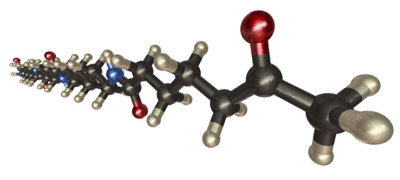
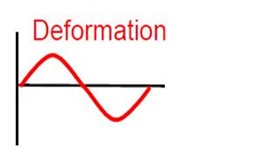
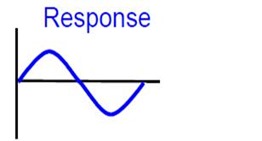
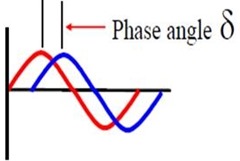
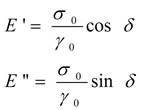
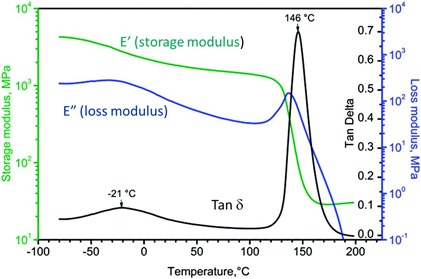
Leave a Reply